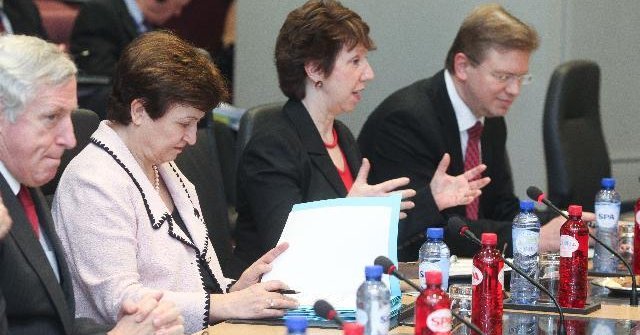The new strategy would result in an additional 1.24 billion euros, on top of the 5.7 billion already allocated for the period 2011-2013, for external aid. Furthermore, the European Council has authorized a further 1 billion euros granted by the European Investment Bank. According to the Commission, these funds will be allocated only if countries meet specific reform requirements and make headway both politically and socially. The launch of the new strategy comes at a time when the Arab Spring is arriving at its zenith. The revolt in Tunisia blazed the trail for the most relevant uprising in the Arab world; meanwhile expectations for a European intervention are growing. So far, the EU has spoken quite weakly and has not taken a strong stand against the regimes’ violent crackdowns that are causing hundreds of casualties in the region. Apart from the case of Libya, the EU has not intervened strongly to prevent local dictators from using violence against their unarmed populations. The EU decided to blame but not act despite several clamors for help from Arab populations. As a result, many people have been killed and some dictators are still in charge, although they are on the wane.
Fortunately the new EU external strategy seems to be a step in the direction of dispute resolution in the area. The EU claimed to be willing to engage more in helping North African countries to develop a substantial democracy and gain better living standards. Both the personal engagement of Lady Ashton and her strong stance for the respect of human rights in the region must be duly recognized. The High Representative, though lacking some firmness in stating the EU position about the Arab Spring, has taken important steps in endorsing the peace process in the region. Last but not least, in the Israeli - Palestinian conflict, where she rammed the message home that Israel should pull back to its 1967 borders as proposed by US President Barak Obama. This firm and to some extent controversial position may be seen as an advantage for her opponents, but without any doubt it is a courageous stance for Lady Aston.
The new EU external strategy has been launched at the right time. But if Lady Ashton does not want it to fall flat she must be aware that granting extra funds to external aid projects is far from enough. As long as the EU does not set up a concrete and liable mechanism to ensure these funds are well spent, its efforts and the funding itself will be vain. For this reason, it can be argued that the announced tighter collaboration with local NGOs and human rights associations are a step towards better control of how EU funds are spent. Even the EP President Jersey Buzek congratulated the “European Endowment for Democracy” as drafted by the Commission. “It is essential to ensure that our actions are effective in an ever changing and interdependent world”. Well said.
An effective external action is exactly what the EU should be aiming at, whatever it takes. Recent scandals concerning its external funding, such as in Afghanistan, have already undermined the image of an ability to keep its own funds under control, raising eyebrows internationally. Consequently, Lady Ashton has spoken about “a new approach”. “Our support is based on partnership not on imposition”. Commissioner Fule seems to be on the same wavelength: “Increased EU support to its neighbours is conditional. It will depend on progress in building and consolidating democracy and respect for the rule of law”.
Nonetheless, this EU strategy is bound to be anything but easy. The Syria crisis featured on the European Council’s agenda on May 24. The 27 EU leaders have imposed new sanctions on Syria by freezing the assets of further national commanders accused of being involved in perpetrating atrocities in the country. The EU has stuck to sanctions rather than taking a stronger stance towards Syria. But sanctions are not enough to deal with this critical situation. The regime’s crackdown is leading to dozens of casualties among civilian. Nevertheless, the regime seems incapable of restoring order as the social and political turmoil are too widespread. In this regard, funding would not help at all.
To gain an insight into the situation, we can look at the situation in Libya. The personal war of Col Gaddafi points the way ahead for what Syria could become too. For this reason, the EU should develop a mechanism to stop such crackdowns at an early stage. Once upon a time, there was someone who emitted the idea of a common European army.


Follow the comments: |
|
